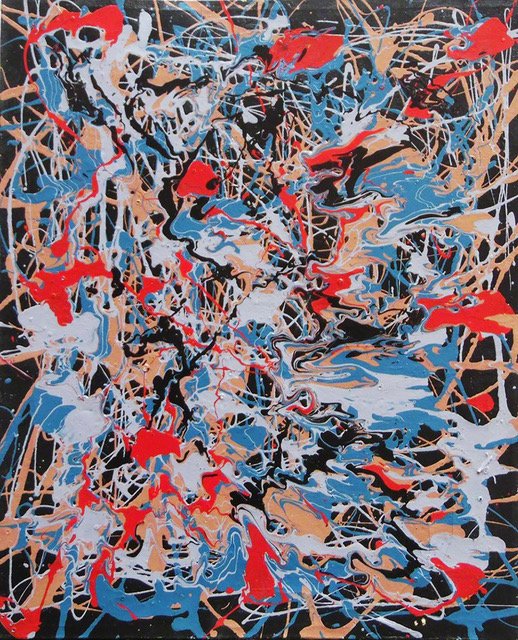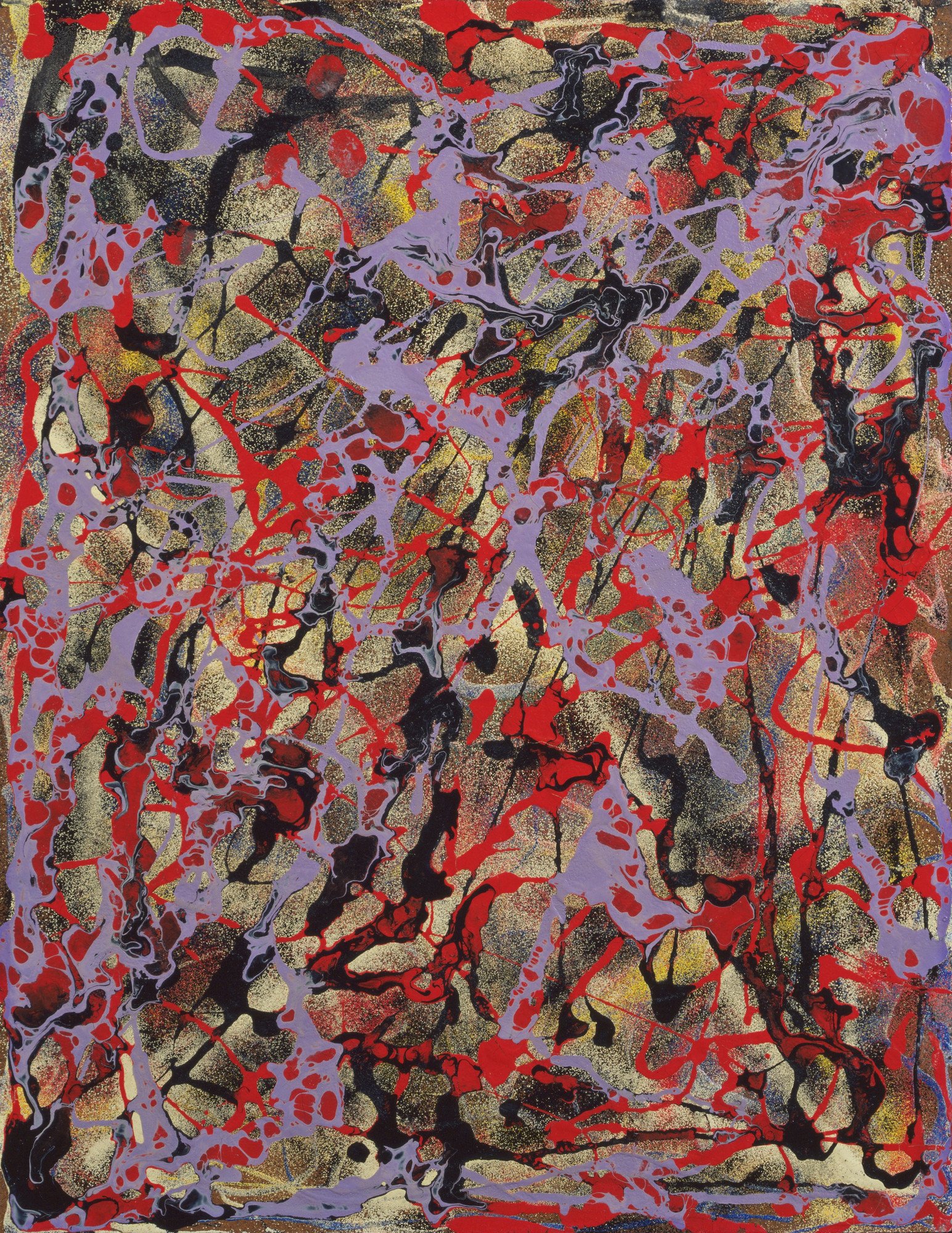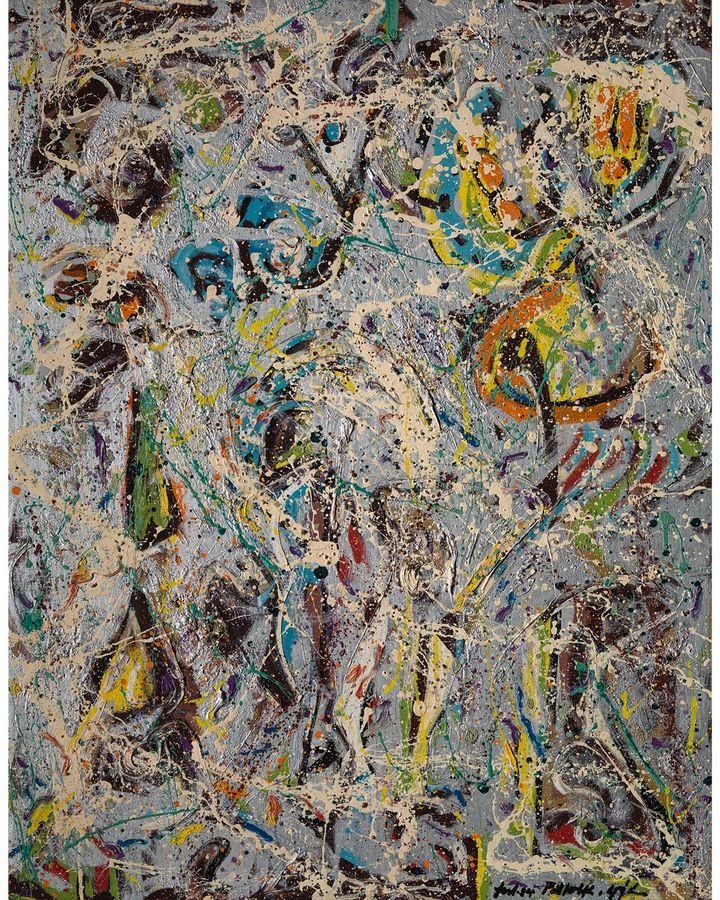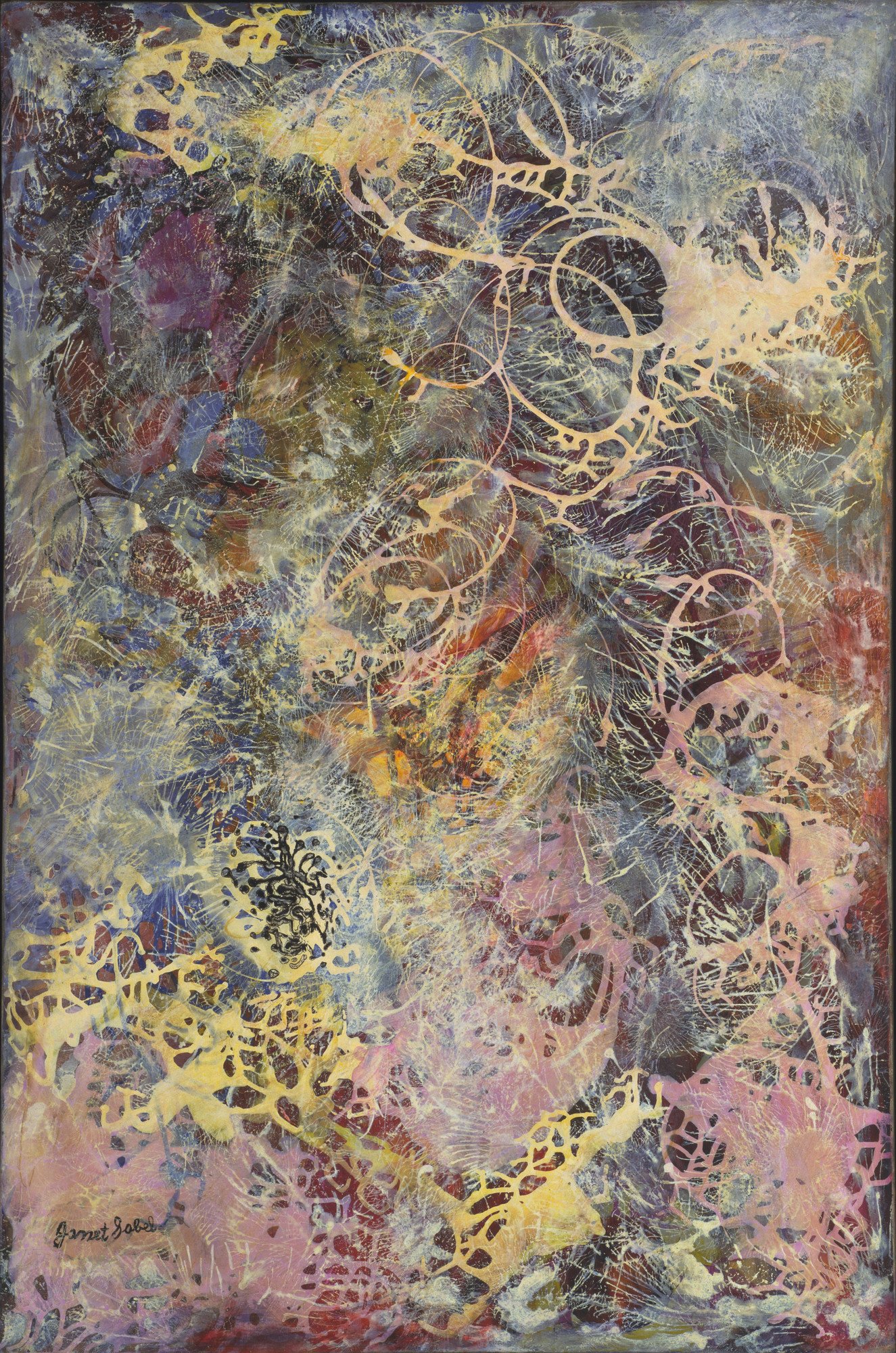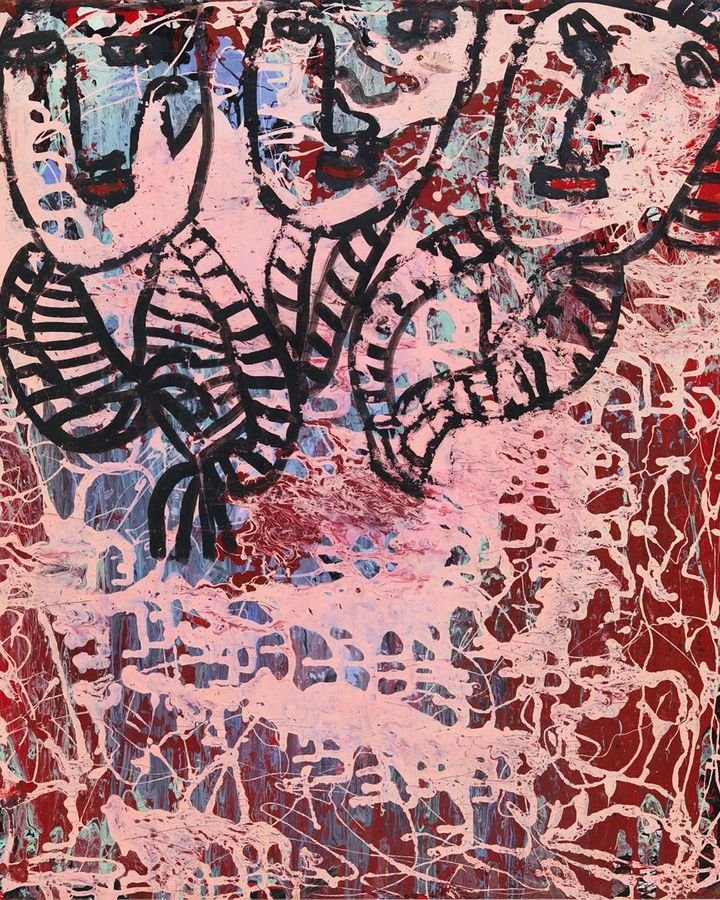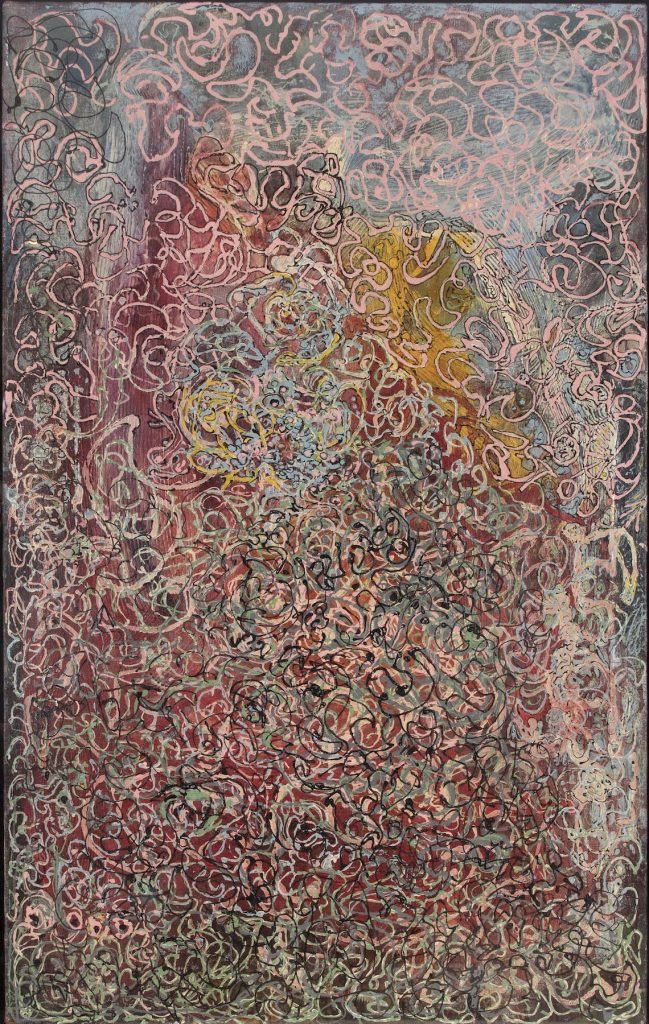Monday Muse: Janet Sobel
Have you heard of Jackson Pollock? What comes to mind when I say his name? Does it conjure images of huge all-over drip paintings? Big art galleries and museum retrospectives? Record-breaking auction sales for his works at Christies? Now what comes to mind when I say Janet Sobel?
You’ve probably never heard of Janet Sobel. She’s one of the many talented, pioneering women artists that history forgot. Janet Sobel was a Ukrainian-born American Abstract Expressionist painter who began painting in the mid-1930s when she was forty-five. Her early life was characterized by trauma; her father was killed in a Russian pogrom and after her father’s death her mother and siblings moved to Ellis Island in New York City.
In 1937 she began painting, producing non-objective abstractions and figurative artwork. Her son recognized her talent and helped her develop her style and share her artwork with other artists like Max Ernst and Andre Breton, philosophers like John Dewey, and the wealthy art gallerist Sidney Janis.
Sobel was the first to create “all-over paintings”, abstract expressive works that fill the entire space of the canvas. She also combined abstract marks with figurative depictions of women, soldiers, and other motifs that reflected the trauma of her childhood. Her paintings were also inspired by music and emotion and Sobel felt that art was a safe space for her imagination.
Her drip-painting technique was a direct influence on Jackson Pollock who admitted that he was inspired by Sobel’s work. However, by the time Sobel was exhibiting her work more prominently in 1946, Pollock had had several large exhibitions, where the drip-painting style was attributed only to him. Art critics never gave her the credit she deserved as an artist and visionary, continually comparing her work to that of male artists. She was called inferior, her revolutionary drip-painting and all-over techniques dismissed as derivative, female appropriation. She was called pigeonholed as a “housewife” even while exhibiting as a working artist. Her work was often dismissed as a primitive folk artist, in comparison to Pollock’s Abstract Expressionist high art.
Janet Sobel has been garnering more attention and recognition as art historians make adjustments to the historical record, elevating the work of talented women and artists of color to the venerated Art Canon. Even in her time, Sobel stood as a living embodiment of the feminist conversation around the domestic roles of women and how they balance their roles at home with their work. It’s been almost 100 years since Janet Sobel first began working as an artist and the conversation about women’s legitimacy after motherhood is ongoing. Sobel’s work stands as an aesthetic testament to true art and its important that we keep putting her work in context, in art history, in art institutions, and in the stories of other artists like Pollock.


